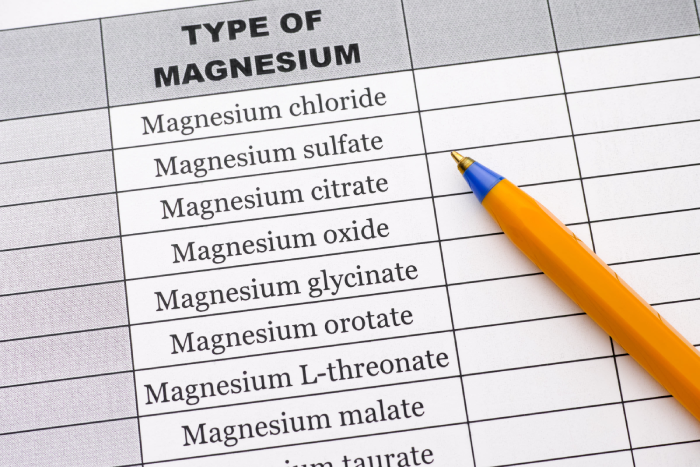Exploring Different Forms of Magnesium and Choosing the Right Supplement for Your Needs
Magnesium is an essential mineral vital for human existence. The average adult body contains approximately 25 grams of magnesium, which is an integral component of the body’s composition. This mineral is necessary for numerous bodily processes and also acts as an electrolyte. That’s why you’ll often find magnesium included in electrolyte supplements. Furthermore, magnesium supports a healthy inflammatory response, contributes to muscle formation and maintenance, promotes stable blood sugar control, aids metabolism, boosts energy levels, and maintains strong and healthy bones.
How much magnesium should we consume daily? The recommended dietary allowance (RDA) for magnesium varies based on age, with 400-420 mg for men and 310-320 mg for women. Considering the relatively low magnesium content in our food, meeting the RDA can be challenging. Magnesium-rich foods that provide around 20% or more of the RDA include Swiss chard (cooked), spinach (cooked), pumpkin seeds, sesame seeds, quinoa, cashews, sunflower seeds, and barley. However, it’s important to note that the magnesium content in food can vary depending on the soil conditions in which they were grown. Soil fertility affects the magnesium levels in plants, and this information is often unknown when purchasing groceries.
Given these factors, many individuals may need additional magnesium through supplementation based on their goals, health status, and dietary intake. Those who take high levels of vitamin D may also require more magnesium in their diet or as a supplement because vitamin D metabolism can deplete magnesium levels. To determine the most suitable options, it is advisable to consult with a doctor.
Now, let’s explore the different forms of magnesium and their benefits:
Magnesium Glycinate: This form combines magnesium with the amino acid glycine. It offers superior absorption and is less likely to cause digestive issues. Magnesium glycinate is commonly available in capsule form, although powdered options are preferable for easier intake. It has been found to positively impact neurological health and may improve conditions like depression, anxiety, and memory loss. The exact mechanism behind its effects is not yet fully understood, but research suggests that magnesium deficiency could be linked to these mental health issues.
Magnesium Citrate: This option is more cost-effective and has good absorption properties. It can help alleviate occasional constipation and is often available in powder form to facilitate regular bowel movements. While it provides some calming effects, they may not be as pronounced as those of magnesium glycinate. Magnesium citrate has also been studied for migraine prevention, but high doses (around 600 mg) may be required, making professional guidance necessary. Excessive magnesium intake can disrupt calcium levels, so some supplements combine a small amount of calcium to maintain balance, particularly for higher magnesium doses. Additionally, magnesium citrate has shown mild efficacy in managing PMS symptoms.
Magnesium Oxide: This form has poor bioavailability compared to citrate or glycinate forms. It is the most affordable option and is commonly found in tablet form. Due to its limited absorption, higher doses may be necessary to achieve desired effects, which can lead to digestive discomfort.
Magnesium Carbonate: This form is a popular choice and offers stomach-soothing antacid benefits when consumed as a powder mixed with water. When combined with citric acid, magnesium carbonate transforms into magnesium citrate. Some powder supplements include citric acid to facilitate this reaction. Magnesium carbonate with citric acid is enjoyable to drink and provides a calming sensation to the stomach.
Before choosing a magnesium supplement, it is important to review the ingredient list and consider your personal health goals. Factors such as improved digestion, better sleep, headache prevention, or exercise support should guide your decision. Consulting with a doctor will help determine the most suitable form of magnesium for your specific needs


